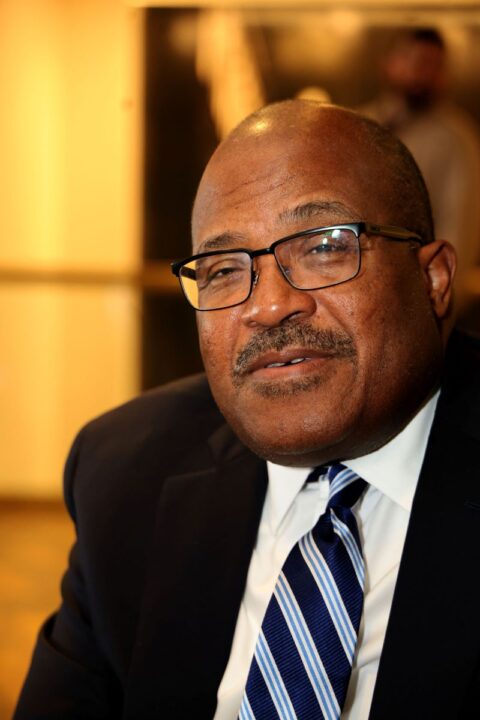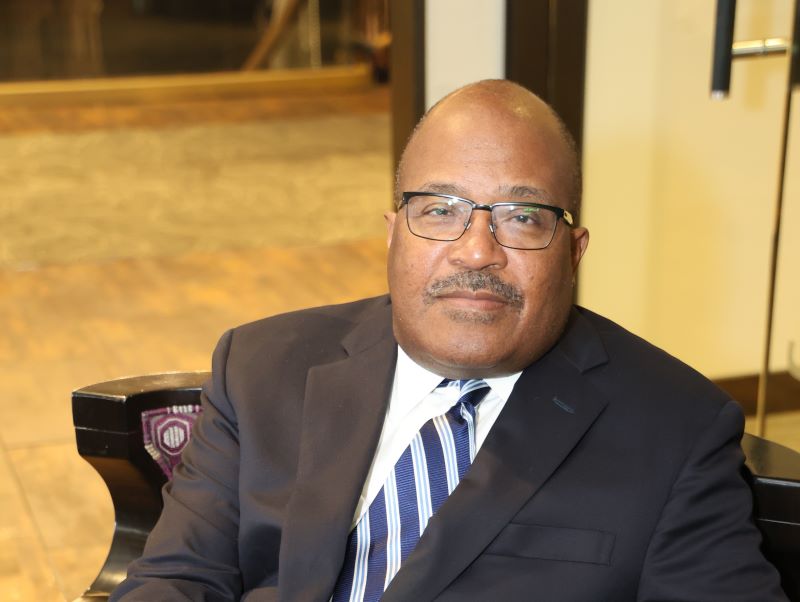In a world media landscape dominated by conglomerates, Irv Randolph stands as a pillar of independent Black journalism. As the Managing Editor of The Philadelphia Tribune, the United States’ oldest continuously published Black newspaper, Randolph has spent over 30 years ensuring that African-American communities are not just represented but accurately and powerfully heard.
A Legacy Rooted in Philadelphia
Randolph’s journey began in North Philadelphia, where he grew up on 16th Street and Cumberland Avenue. A product of Philadelphia public schools, he graduated from Franklin Learning Center before attending Penn State, and later transferring to Temple University, where he earned a journalism degree. His mother, a retired teacher, and his wife are also Temple graduates.
His journalism career started early. In high school, he founded the Franklin Learning Center’s newspaper, which ignited his passion for reporting. At Temple, he wrote for the university’s newspaper and co-founded Frontline, a student magazine focusing on issues affecting Black students. These experiences laid the foundation for a career dedicated to Black storytelling.
Breaking Barriers in Journalism
Before joining The Philadelphia Tribune, Randolph worked for Gannett Newspapers for 12 years. His first reporting job was at the Chambersburg Public Opinion, where he became the first Black journalist in the newsroom. He later spent nine years at the Courier-Post in New Jersey, covering a wide range of community journalism beats.
When he joined The Tribune as its managing editor in the early 1990s, he brought a clear editorial mission: Truth, accountability, and the amplification of Black voices.
“We have to tell the truth and all the truth, even when it’s inconvenient,” Randolph says, underscoring his approach to journalism.

The Purpose of Black Journalism
Randolph says that he sees independent Black media as a necessity, not an option.
“So much of the truth in the media has been distorted — we are not truly represented,” he asserts. “Black media must focus on everyday people —the businessperson, the worker, the professional because their stories matter too.”
Under his editorial leadership, The Tribune has remained committed to highlighting the real stories of Black communities, challenging negative portrayals, and holding institutions accountable.
“We hold those in power accountable. If they don’t do right by us, we must call them out,” he explains.
Mentorship and Building the Next Generation
Randolph believes journalism is more than just reporting; it’s about building the next generation of truth-tellers. He takes pride in mentoring young journalists who have passed through The Tribune, many of whom have gone on to work at major national outlets like The New York Times, MSNBC, The Wall Street Journal, and The Philadelphia Inquirer.
“We may not offer the biggest salaries, but we offer something more valuable — opportunity,” he says. “I want to help the next generation take the baton and keep running long after I’m gone.”
His approach to mentorship isn’t just about technical skills; it’s about instilling core values: truth, integrity, and resilience.
“Journalism is not for those who fear criticism,” he says. “You have to ask tough questions. You cannot go into this field and be fearful.”
Navigating the Digital Shift
The rise of digital media has forced legacy newspapers to adapt. The Tribune now operates with a digital-first strategy, breaking news online while using its traditional print distribution for a deeper analysis. “Misinformation spreads like wildfire,” he points out. “Our job is to counter it with truth and fact without bias, without compromise.
His approach embraces multi-format storytelling, including video, podcasts, and social media engagement. He acknowledges that digital media is both the present and the future.
Defining Moments in His Career
Among the countless stories that he has covered, as a writer and editor over the years, meeting South African anti-apartheid activist Nelson Mandela and interviewing Barack Obama stand out prominently.
When Mandela was released from prison, Randolph traveled to South Africa to report on the country’s transition. “Seeing Robben Island, where Mandela and African National Congress (ANC) leaders prepared to govern, even while imprisoned. That was life-changing.”
His meeting with Obama during the 2008 presidential campaign was equally memorable and ultimately surprising. The Tribune was allotted just 15 minutes with the then-U.S. Senator. But as Randolph recalls, “I wasn’t concerned. I knew that if we asked the right questions, we’d keep him engaged. He ended up staying for over an hour.”

The Future of Philadelphia and Black Journalism
Beyond journalism, Randolph is passionate about Philadelphia’s future. He sees the public school system as key to transforming communities, and he advocates for cleaner neighborhoods and safer streets, which is a big early initiative of Philadelphia Mayor Cherelle Parker.
“A dirty city depresses people,” he observes. “If your neighborhood is filled with trash and abandoned houses, it feels like anything can happen. We need to clean up — not just for appearance, but for community morale.”
On a larger scale, he stresses the importance of Black-owned media institutions:
“It is critical that we tell our own story, because if we don’t, someone else will, and they may not get it right,” he says.
Randolph warns against taking Black media for granted, adding: “We have an obligation to support good journalism when we see it. Don’t take it for granted.”
Final Reflections
After decades in journalism, Randolph remains deeply committed to his mission. If he could do anything differently, he says he might have pursued law school — not to practice law, but to sharpen his skills in analyzing and deconstructing arguments.
But overall, he has no regrets, reflecting: “I’m doing what I was meant to do.”
As he looks to the future, one thing remains clear — Black journalism is essential, and Irv Randolph, the champion for truth, will continue fighting to keep it strong.
This article is made possible with the support from the following organizations:

Dr. Eric John Nzeribe is the Publisher of FunTimes Magazine and has a demonstrated history of working in the publishing industry since 1992. His interests include using data to understand and solve social issues, narrative stories, digital marketing, community engagement, and online/print journalism features. Dr. Nzeribe is a social media and communication professional with certificates in Digital Media for Social Impact from the University of Pennsylvania, Digital Strategies for Business: Leading the Next-Generation Enterprise from Columbia University, and a Master of Science (MS) in Publication Management from Drexel University and a Doctorate in Business Administration from Temple University.








